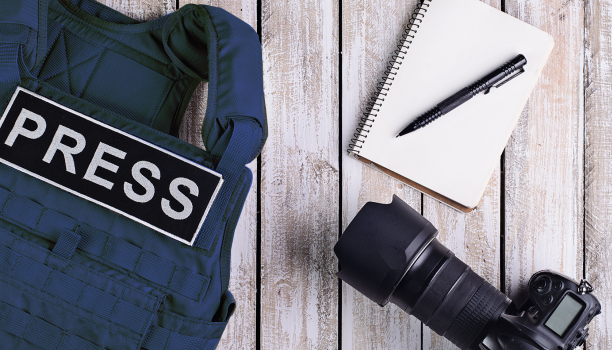Lawyer
Covering military conflicts has always been a difficult and dangerous task for journalists. In today's conditions, when Ukraine is facing military aggression, the protection of journalists' rights becomes especially urgent. Journalists working in hot spots risk their lives and health to inform society about events at the front. In this article, we will consider the legal aspects of protecting the rights of journalists, paying attention to legal advice, document analysis and legal opinions.
Legislative regulation of the protection of journalists' rights
Protection of journalists' rights is regulated by a number of international and national legal acts. In particular, the Geneva Conventions and their Additional Protocols contain provisions on the protection of civilians, including journalists, during armed conflicts. In addition, Article 19 of the Universal Declaration of Human Rights guarantees the right to freedom of speech and expression, which includes the right to collect and disseminate information.
National legislation also provides for the protection of journalists' rights. According to the Law of Ukraine "On Information", journalists have the right to unhindered access to information, protection of their sources of information and protection from illegal interference in their professional activities.
Consultation of a lawyer
The first step for journalists planning to cover military conflicts is to consult a lawyer. A lawyer will help you understand the legal aspects of working in a conflict zone, explain what documents you need to have with you and what safety rules to follow. A lawyer's consultation may also include issues of journalist accreditation, interaction with military and law enforcement agencies.
Analysis of documents
Journalists working in wartime must carry a number of documents confirming their professional status and accreditation. Analysis of documents such as journalist credentials, accreditation cards, permits for movement in the combat zone is an important stage of preparation for work in hot spots.
A lawyer can help with the analysis of these documents, verify their compliance with the requirements of legislation and international norms, and prepare additional documents if necessary. This will minimize the risks associated with illegal detentions or other obstacles in the journalist's work.
Legal opinion
A legal opinion is a document in which a lawyer gives his assessment of a certain situation from a legal point of view. In the context of protecting the rights of journalists, a legal opinion may include an analysis of the journalist's legal status, his rights and obligations in the conflict zone, as well as an assessment of risks and recommendations for their minimization.
For example, if a journalist plans to work in an area controlled by illegal armed groups, the legal opinion may contain recommendations on conduct, interactions with local residents, and security. This will help the journalist avoid danger and ensure his legal protection.
Legal opinion of the lawyer
A lawyer's legal opinion may be necessary in cases where a journalist faces legal problems or a violation of his rights. After conducting a detailed analysis of the situation, the lawyer will provide a conclusion on possible ways to resolve the conflict, compliance with the rights and obligations of the parties, as well as recommendations on further legal actions.
For example, if a journalist was illegally detained or his right to collect information was restricted, a lawyer's legal opinion will help determine the legal grounds for protecting the journalist's rights, make the necessary complaints or apply to the relevant authorities.

































